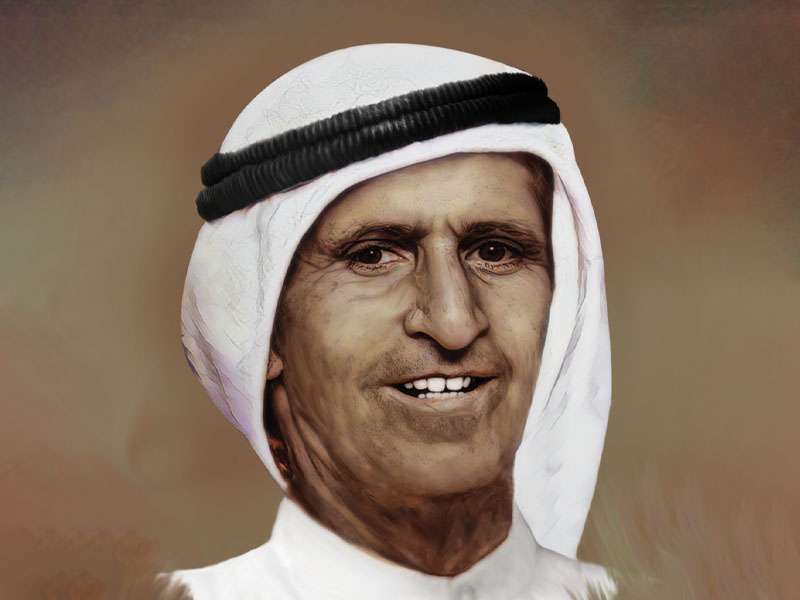A Word from the Editor: The Poet is Anonymous No More
Issue 53

The people who created folk art usually did so anonymously. For many years, folk songs were passed down and modified by different generations without any attribution to their creators. Then the ‘Nahham’ emerged. A singer who performed traditional songs and prayers in order to motivate and entertain divers, the Nahham set the rhythm for rowing and led the chorus. With their mastery and rich voices, these singers were considered the creators of folk songs with well-known melodic modes, such as the sailors’ songs of the Arabian Gulf and the arts of ‘Sawt’, ‘Samari’, ‘Khamari’ and ‘Bastat’.
The performance of folk songs developed as a result of gramophone records and radio, and singers were thought of as the creators of these songs and their lyrics and melodies. While a song’s melodic templates stayed the same as they were passed down from one generation to the next, the lyrics often changed.
Until the mid-1920s, the creators of classical and colloquial poetic masterpieces remained unknown to the general population, even when the songs were recorded or broadcast. Later, some folk poets overcame this issue by including symbolic representations of their names in the lyrics. However, because most poets did not want to reveal their private loves or their weakness for women, many were still overlooked, and they did not receive credit for their songs.
Mubarak Amr Al-Ammari, a Bahraini researcher, managed to identify the creators of famous folk songs of the Arabian Gulf – particularly Gulf Sawt songs – in several books. The most important are the songs of the late Muhammad bin Faris and Dhahi bin Walid.
In the Journal’s new section on publications, the reader will find an article about the Folk Culture Centre for Studies, Research and Publishing, which is sponsoring the publication of a collection of folk poetry composed by Ibn Habtoor and compiled and researched by Professor Al-Ammari. A lyric poet from Bahrain, Ibn Habtoor was the first to compose lyrics in the Bahraini dialect. Singers around the Gulf performed his songs. They became very popular, but no-one knew who had composed them. It was very frustrating for the poet to hear his lyrics associated only with the names of the singers.
The publication of this collection is dedicated to this poet; he died with a broken heart. Despite the efforts of certain local newspapers, he has remained unknown for more than half a century.
This great achievement is a tribute to the researcher who compiled the collection, and to the editor who revised the book and the information about Ibn Habtoor’s life. In line with its vision and in an effort to make sure that this long-suffering poet receives the recognition that he deserved, the Folk Culture Centre for Studies, Research and Publishing ensured that the highest production and printing standards were met in order to put this book into the hands of readers in Bahrain and the Arabian Gulf.
May God have mercy upon the creative lyric poet Muhammad Ibn Habtoor, and may God bless the researcher – Al-Ammari – and those who helped him in the service of folk culture.
Ali Abdullah Khalifa
Editor-in-Chief







































































